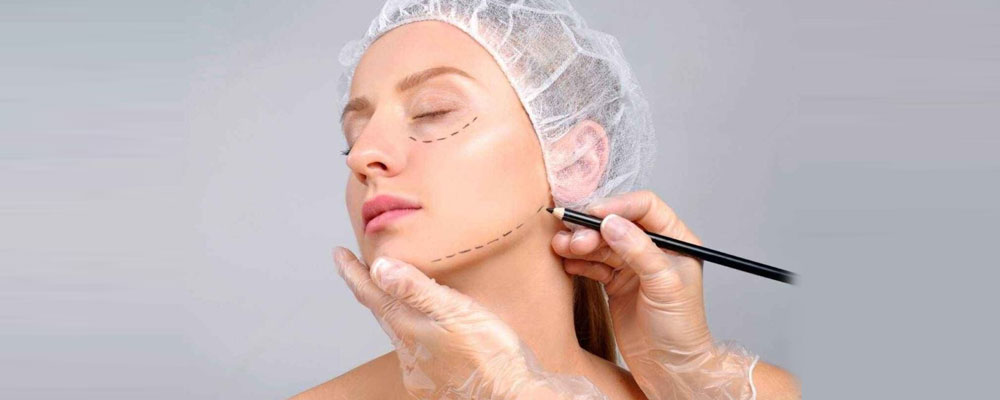Best Skin Specialist in Vile Parle
Skin symptoms can arise from a multitude of conditions, ranging from mild irritations to serious diseases. Proper treatment is essential to alleviate discomfort, prevent complications, and promote healing. Here's a comprehensive guide on the treatment of various skin symptoms, covering common conditions, treatment options, and preventive measures. Dr Pankti Gundavda is Best Skin Specialist in Vile Parle.
Understanding Common Skin Symptoms
- Rashes: Red, inflamed patches that can be itchy or painful.
- Dryness: Flaky, rough skin that can crack and bleed.
- Itching (Pruritus): An uncomfortable, often persistent urge to scratch.
- Redness and Swelling: Inflammation and erythema indicating underlying irritation or infection.
- Blisters and Sores: Fluid-filled bumps that can break open, leading to ulcers or scabs.Dr Pankti Gundavda is Best Skin Specialist in Vile Parle.
General Treatment Principles
- Identify and Avoid Triggers: Many skin conditions are exacerbated by specific triggers, such as allergens, irritants, or stress. Identifying and avoiding these can help manage symptoms.
- Maintain Good Skin Hygiene: Regularly clean the affected area with mild soap and lukewarm water. Avoid hot water and harsh cleansers, which can aggravate symptoms.
- Moisturize Regularly: Keeping the skin hydrated is crucial, especially for conditions like eczema and psoriasis. Use fragrance-free, hypoallergenic moisturizers.
- Topical Treatments: Over-the-counter (OTC) creams and ointments containing hydrocortisone, calamine, or antihistamines can relieve itching and inflammation. Prescription-strength topical treatments might be necessary for more severe cases.
- Medications: Oral antihistamines can help with itching, while antibiotics may be required for bacterial infections. Antifungal medications are used for fungal infections, and antiviral drugs for viral conditions. Dr Pankti Gundavda is Best Skin Specialist in Vile Parle.
- Lifestyle Adjustments: Stress management techniques, a healthy diet, and adequate hydration can improve overall skin health and reduce symptoms.
Specific Treatments for Common Skin Conditions
Eczema (Atopic Dermatitis)
- Moisturizers: Use emollients liberally and frequently.
- Topical Steroids: Hydrocortisone creams for mild cases, stronger corticosteroids for severe flares.
- Immunomodulators: Tacrolimus or pimecrolimus for moderate to severe cases.
- Antihistamines: For nighttime itching relief.
Psoriasis
- Topical Treatments: Corticosteroids, vitamin D analogues (calcipotriene), and coal tar.
- Phototherapy: Controlled exposure to ultraviolet light.
- Systemic Treatments: Oral or injected medications like methotrexate, cyclosporine, or biologics for severe cases.
Acne
- Topical Retinoids: Such as tretinoin to promote cell turnover.
- Benzoyl Peroxide: To reduce bacteria and prevent clogged pores.
- Antibiotics: Topical or oral antibiotics to combat infection.
- Hormonal Treatments: For women, oral contraceptives or anti-androgens can help.
Fungal Infections (Athlete's Foot, Ringworm)
- Antifungal Creams: OTC options include clotrimazole and terbinafine.
- Oral Antifungals: For more severe or widespread infections.
- Hygiene: Keep the affected area clean and dry; avoid sharing personal items
Contact Dermatitis
- Identify and Avoid Irritants: Determine the cause (e.g., cosmetics, soaps) and avoid it.
- Topical Steroids: To reduce inflammation.
- Moisturizers: To repair the skin barrier.
Hives (Urticaria)
- Antihistamines: Cetirizine, loratadine, or diphenhydramine to reduce itching and swelling.
- Avoid Triggers: Identify foods, medications, or environmental factors that cause outbreaks. Dr Pankti Gundavda is Best Skin Specialist in Vile Parle.
Preventive Measures
- Sun Protection: Use broad-spectrum sunscreen with an SPF of at least 30. Wear protective clothing and avoid peak sun hours.
- Hydration: Drink plenty of water to maintain skin hydration from the inside out.
- Balanced Diet: A diet rich in vitamins, minerals, and antioxidants supports skin health.
- Avoid Smoking: Smoking can accelerate skin aging and worsen conditions like psoriasis.
- Manage Stress: Stress can trigger or exacerbate many skin conditions. Practices like yoga, meditation, and adequate sleep can help.
When to Seek Medical Advice
- Persistent Symptoms: If symptoms do not improve with standard treatments.
- Severe Pain or Discomfort: Significant pain, swelling, or discomfort.
- Infection Signs: Increased redness, warmth, pus, or fever.
- Rapidly Spreading Rashes: Especially if accompanied by other symptoms like fever or difficulty breathing. Dr Pankti Gundavda is Best Skin Specialist in Vile Parle.
Conclusion
Effective treatment of skin symptoms requires a multifaceted approach tailored to the specific condition. By understanding the underlying causes, utilizing appropriate treatments, and adopting preventive measures, you can manage and alleviate skin symptoms effectively. If in doubt, always consult a healthcare professional for personalized advice and treatment. Dr Pankti Gundavda is Best Skin Specialist in Vile Parle.


